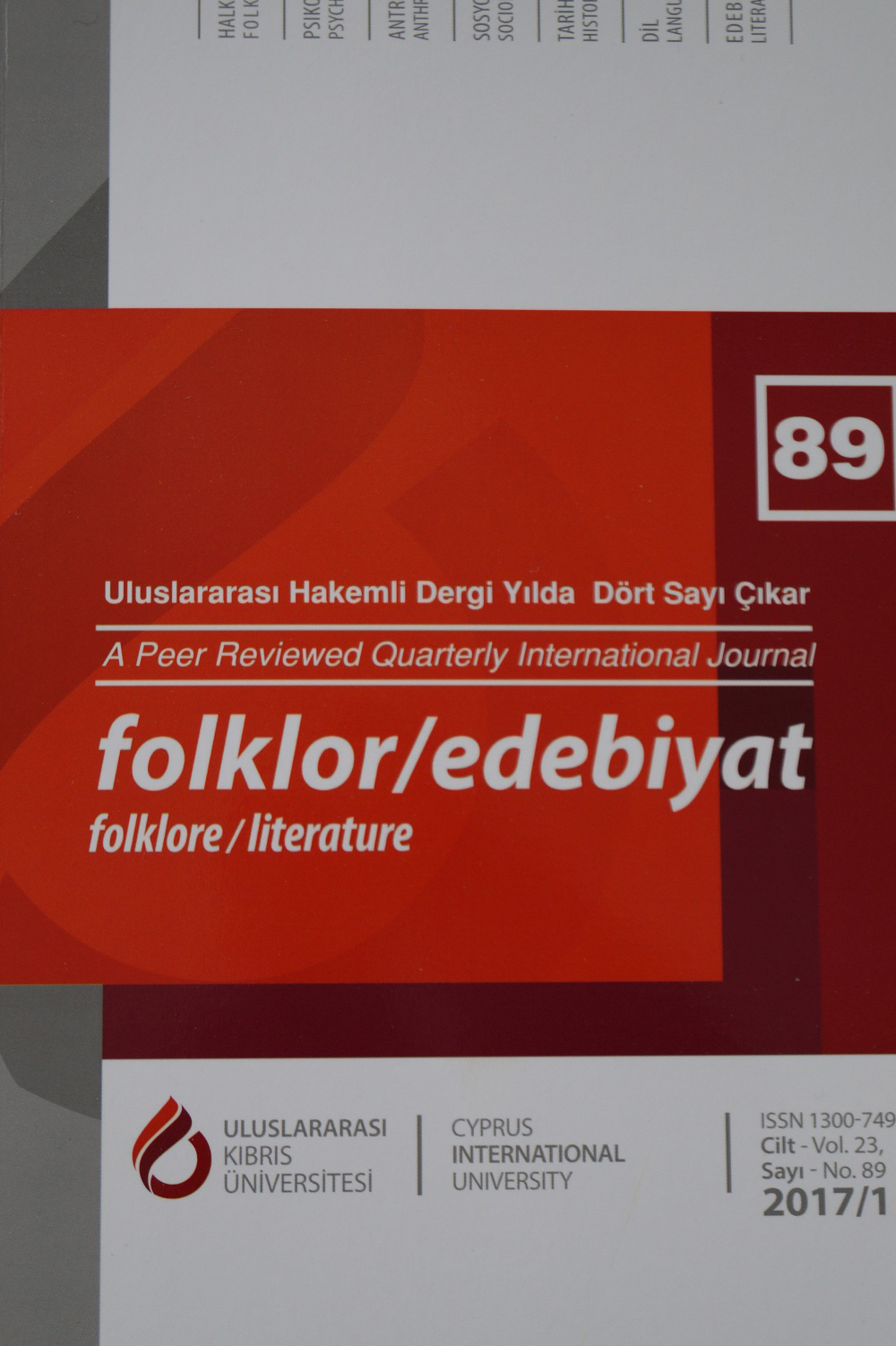
JOURNAL OF FOLKLORE/LITERATURE
Cyprus International University
DOI: 10.5897/UJ-FOLKLORE
Email: folkloredebiyat@ciu.edu.tr
EURO-AMERICAN HEGEMONY AND LARS vON TRIER AS A ‘EUROPEAN DIRECTOR’
DOI: 10.5897/UJ-FOLKLORE.17.009.1 | Article Number: 59AA99779 | Vol.89 (1) - January 2017
Authors: Denli Özlem and Köksal Selma
Keywords: Lars von Trier, Euro-America, Hegemony, Modernity, Apocalypse, Dystopia, Collective Guilt, Penance, Collective Unconscious, Political Claustrophobia, Epic, Dogma, Realist Cinema, Formalist Cinema
Lars von Trier’s filmography invites the audience to complex and multi-faceted ref- lections on Western culture and civilization. The cultural and historical entity, which we term ‘Euro-America’, is located at the center of Trier’s intellectual and artistic endeavor as well as his critique of modernity in a broader sense. This essay presents a discussion on relevant themes and topics underlying Trier’s filmography from the perspective of film study and political science.
We present and examine key films by the Danish director with a view to unearth the bases of his approach to interpersonal, political and moral aspects of modernity in general, and to Euro-American civilization in particular. Our investigation traces central elements dominating these works, such as the ideas of collective guilt, penance and hu- man nature, as well as Trier’s perception of European history as a perpetual presence on contemporary Western civilization. We reflect upon Trier’s aesthetic and stylistic choices in these films, and give critical assessments of the ways in which these elements both augment and clash with his deep-seated ‘political claustrophobia’ and complete moral condemnation of Western-bourgeois culture.
Başoğul, Reha. Melancholia, http://www.rehabasogul.com/2011/10/22/melancholia- melankoli-lars-von-trier-sinema-film-elestiri-analiz/.
http://alirahimli.blogspot.com.tr/2015/03/melankoli-lars-von-trier.html
Benjamin, Walter. Brecht’i Anlamak, çeviri: Haluk Barışcan, Aydın İşisağ, İstanbul: Metis Yayınları, 1981.
Canar, Burcu. Şiddetle Yoldan Çıkmanın Zarafeti: Dogville, http://viraverita.org/yazilar/ sid- detle-yoldan-cikmanin-zarafeti-dogville.
Cündioğlu, Dücane. Melancholia, http://ducanecundioglusimurggrubu.blogspot.com.tr/ 2012/09/melancholia.html#!/2012/09/melancholia.html.
De Sade, Marquis. Erdemle Kırbaçlanan Kadın, çeviri: Yaşar İlksavaş, İstanbul: Oğlak Ya- yıncılık.
Denny, David. “Signifying Grace: A Reading of Lars Von Trier’s Dogville”, Žižek and Cine- ma – IJŽS, Vol 1, No: 3, 2007.
Geijerstam, A. Eva. “A Conversation with Lars Von Trier, Henning Bendtsen and Ernst- Hugo Järegård”, (ed) Jan Lumholdt, Lars Von Trier: Interviews , Mississippi: University Press of Mississippi, 2003.
Greenberg, E. Udi. “The Holocaust Repressed: Memory and the Subconscious in Lars Von Trier Europa”, Film and History: An Interdisciplinary Journal of Film and Television Studies, No: 38, 2008.
Hjort, Mette. “The Problem with Provocation: On Lars von Trier, Enfant Terrible of Danish Art Film”, Kinema, http://www.kinema.uwaterloo.ca/article.php?id=492&feature.
Koutsourakis, Angelos. “The Persistence of Dialectics or the Desire for History in Lars von Trier’s Europa and Theo Angelopoulos’us The Suspended Step of the Stork”, Kinema, http://www.kinema.uwaterloo.ca/article.php?id=465.
Maskowki, Michel. “The Evil of Modernity: Joseph Conrad’s Heart of Darkness and Fran- cis Ford Coppola’s Apocalypse Now”, Yearbook of Conrad Studies, Vol. 3, 2007.
Nutku, Özdemir. Türkiye’de Brecht, İstanbul: Tiyatro/76 yayınları, 1976.
Sean, Martin. Andrey Tarkovski, çeviren: Irmak Yavlal, İstanbul: Kalkedon Yayınları, 2013. Simons, Jan. “Anti-Christ: Tragedy, Farce or Game?”, Film-Philosophy, No: 19, 2015.
Simons, Jan. Playing the Waves: Lars von Trier’s Game Cinema, Amsterdam: Amsterdam University Press, 2007.
Trier, Lars Von. Sinema Tutkusu, (der.) Jan Lumholdt, çeviri: Selim Özgül, İstanbul: Agora Kitaplığı, 2014.
Tuğcu, Ahmet. “Lars von Trier Dosyası”, Ekşi Sinema, http://eksisinema.com/lars-von-trier- dosyasi/.
